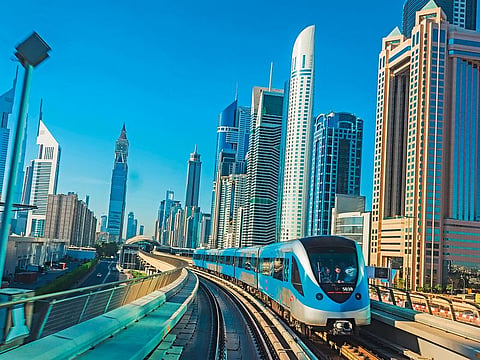RTA finishes major LED lighting upgrade on Dubai Metro, saving millions in energy costs
Dubai Metro lights up with energy-saving LEDs, cuts carbon emission

Dubai: The Roads and Transport Authority (RTA) in Dubai has completed the second phase of its energy optimisation program, replacing 12,768 light fixtures at metro stations and facilities with energy-efficient LED units, part of a wider plan to cut power use by 30 percent by 2030.
Muna Al Osaimi, CEO of the RTA’s Corporate Strategy and Governance Sector, told Emarat Al Youm that the authority’s energy-saving initiatives are key to its sustainability drive. The LED project, which began in 2021, has now seen both phases completed, with a total of 19,968 LED lights installed along the Red and Green Lines.
These replacements have saved roughly 16.7 million kilowatt-hours of electricity over two years, an estimated Dh 7.6 million in cost reductions, while substantially reducing carbon emissions.
LED fixtures, Al Osaimi noted, convert approximately 95 percent of the electricity they consume into light, with only 5 percent lost as heat.
In the first phase alone, the RTA replaced 7,200 lights, saving 4.98 million kilowatt-hours in a single year and cutting 2,142 tonnes of carbon dioxide emissions.
The second phase, completed this year, yielded a similar 4.98 million kilowatt-hour reduction, alongside a larger carbon footprint drop of 5,141 tonnes.
The RTA has also advanced its renewable energy agenda by installing solar systems at 22 of its buildings and facilities, including bus depots in Al Quoz, Al Khawaneej, and Al Ruwayyah; passenger bus stations in Al Satwa and Oud Metha; metro depots; and maintenance workshops in Al Muhaisnah.
Live data monitoring ensures optimal system performance. According to the authority, these solar installations are expected to produce about 32 million kilowatt-hours annually, preventing 10,000 tonnes of carbon dioxide emissions each year.
These measures align with Dubai’s Clean Energy Strategy 2050 and Integrated Energy Strategy 2030, as the RTA works toward achieving net-zero emissions in public transport by 2050.
In addition to the metro lighting program, the RTA has implemented energy-efficiency initiatives across its operations since 2012. In 2024 alone, 37 such measures saved 128 gigawatt-hours of electricity, 36 million liters of fuel, 16 million imperial gallons of water, and reduced emissions by 148,000 tonnes of carbon dioxide equivalent.
Sign up for the Daily Briefing
Get the latest news and updates straight to your inbox



